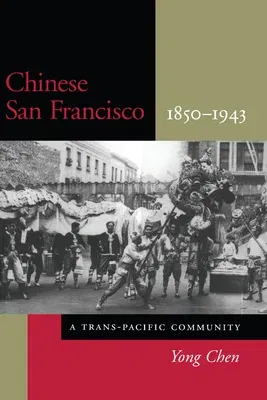Founded during the Gold Rush years, the Chinese community of San
Francisco became the largest and most vibrant Chinatown in America. For
those Chinese traveling between the Old World and the New, San Francisco
was a port of entry and departure. Many Chinese settled there, forming
one of the oldest continuing ethnic communities in urban America.
This is a detailed social and cultural history of the Chinese in San
Francisco, relating the development of various social and cultural
institutions, ranging from brothels to the powerful "Six Companies." The
book recaptures in vivid detail not only the community's collective
mentalities but also the lives of ordinary people--laborers,
theater-goers, gamblers, and prostitutes. In so doing, the author
achieves what has been missing from virtually all the historiographic
writing on the Chinese in America--he brings to life individual
personalities with their varying human qualities.
The book shows the persistence of Chinese social patterns in San
Francisco Chinatown, and demonstrates how the community helped shape
white America's view of Asians in general and the development of race
consciousness and strife. The author challenges several long-accepted
views, such as the myth that the Chinese exodus to California in the
mid-nineteenth century occurred mainly because of impoverishment in
South China and the notion that the overwhelming majority of Chinese
women in San Francisco were prostitutes. He also makes insightful
comparisons of Chinese Americans with other ethnic groups.
The book makes imaginative use of a wide range of materials, private and
public, fictional and statistical, in both Chinese and English, produced
by both pro- and anti-Chinese sources. Among these are Chinese-language
newspapers (including their advertisements), handbills, personal
diaries, and other cultural productions. The author offers
multidisciplinary analyses of such documents, showing the possibilities
of extracting rich historical information from texts created for very
different purposes.

